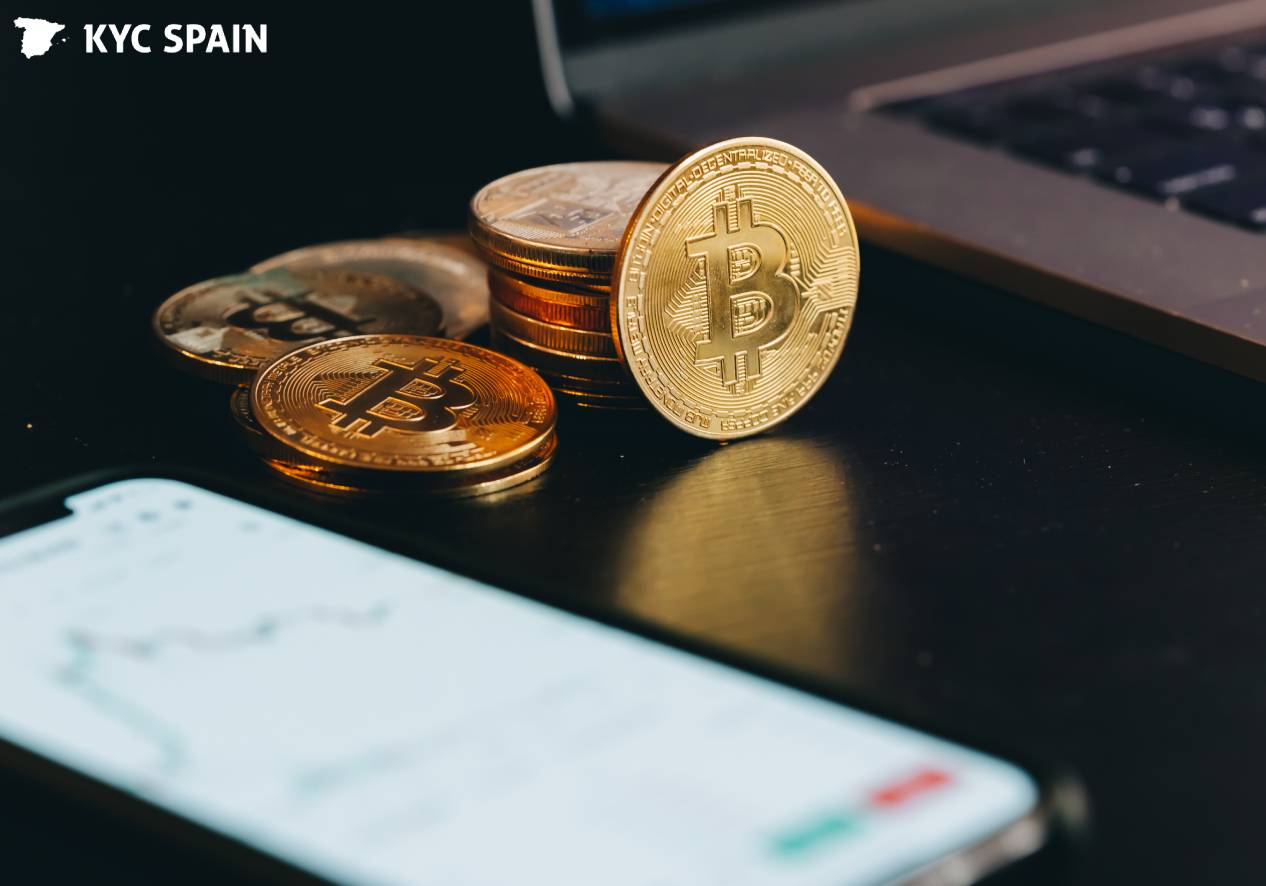Is it a necessity to prioritize KYC in crypto? KYC plays an essential role in ensuring compliance and security with crypto exchanges and other virtual asset service providers ( VASPs). KYC practices are followed in the cryptocurrency industry to safeguard them against illicit activities like terrorist financing, anti-money laundering, and other types of fraud. KYC is a process through which crypto exchanges can verify and identify the identity of their users. Let’s delve deeper into what KYC entails in the realm of crypto and why exchanges require it.
What is KYC in Crypto?
KYC in crypto leads to a process through which cryptocurrency exchanges can identify and verify the identities of their customers. The KYC procedure involves collecting and verifying personal information gathered from users such as their names, address proof, date of birth, and government-issued identities. KYC solutions in crypto allow exchanges to authenticate users’ identities and assess the potential risks associated with the particular transaction. By implementing robust KYC procedures, exchanges aim to comply with regulatory requirements, mitigate the risk of financial crimes, and foster trust among users.
What does KYC compliance for VASPs look like?
One of the requirements for VASPs to be KYC compliant is adherence to existing regulations as stipulated by bodies such as FATF. To ascertain their customers’ identities and monitor transactions for any signs of suspicious activity, crypto exchanges, and other VASPs are required to have inclusive KYC protocols. This will include partnering with reputable known providers of crypto KYC services to comply with these regulations and reduce the possibility of illegal activities occurring in the system. By doing this, they show their dedication to safeguarding users from possible dangers and upholding the cryptocurrency niche’s sanctity.
What is meant by Crypto Transaction Monitoring?
Crypto transaction monitoring involves watching over blockchain transactions continually to identify or prevent unlawful activities like money laundering as well as fraud. Through this process, transactional data is analyzed using advanced technology tools and analytics that help in identifying patterns linked with questionable activities. For instance, when carried out in real-time, cryptocurrency exchanges and other VASPs can use this method to spot risky payments requiring further scrutiny before taking necessary measures to prevent financial crimes. Cryptocurrency transaction monitoring is an integral component of KYC solutions in the crypto space, helping exchanges maintain regulatory compliance and safeguard the integrity of their platforms.
Benefits of KYC in Crypto
Accessing KYC in crypto exchanges caters to multiple advantages for exchanges and users alike. They are:
Trust and Credibility:
In the crypto industry, KYC ensures trustworthiness and faith in the system through openness and keeping everyone accountable making users more comfortable about identification verification.
Risk Management:
Risk management of user and transaction risks, finding high-risk users, and preventing financial crimes are some of the benefits of cryptocurrency KYC.
Less money laundering:
Over 46000 clients lost their crypto worth over a billion dollars to fraudsters between Jan 1st, 2021 to March 31st, 2022 (Fletcher 2022). Stringent identity proofing can greatly reduce fraud as well as improve market standing.
More stable markets:
High-level identity verifications that are done by KYC programs in the highly volatile, anonymous transactions common to cryptos are key in increasing the stability of markets as well as enabling value appreciation.
Is it Possible to Buy Crypto Without KYC?
Buying and selling crypto exchanges without undergoing the KYC procedure has been a subject of debate. Some digital platforms offer limited access for exchanging cryptos without KYC, but many reputable exchanges still exist that require KYC compliance to adhere to regulatory standards and combat money laundering. Financial regulators like The Office of Foreign Assets Control (OFAC) have also expelled exchanges for violating sanctions. Innovative KYC solutions have emerged to provide KYC services specifically in the cryptocurrency industry. Crypto KYC providers, such as KYC Spain, UK KYC, etc offer solutions that enable exchanges and other crypto businesses to verify users’ identities efficiently while maintaining privacy and security. Therefore, users should choose reputable crypto exchanges who prioritize KYC compliance and user security.
Conclusion
To sum up, regulatory compliance, risk management for financial crimes, and user confidence play an important role for KYCs in the world of cryptocurrencies. To maintain their platforms’ reputation while protecting their customers from possible risks, exchanges should institute strong KYC processes or work with renowned players in this sector like legit crypto KYC partners. As the Crypto industry continues to grow, KYC will remain a key component of security and compliance within the crypto ecosystem.

